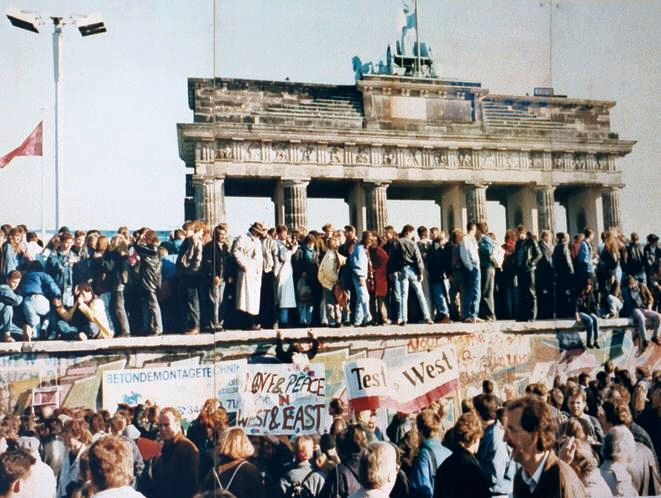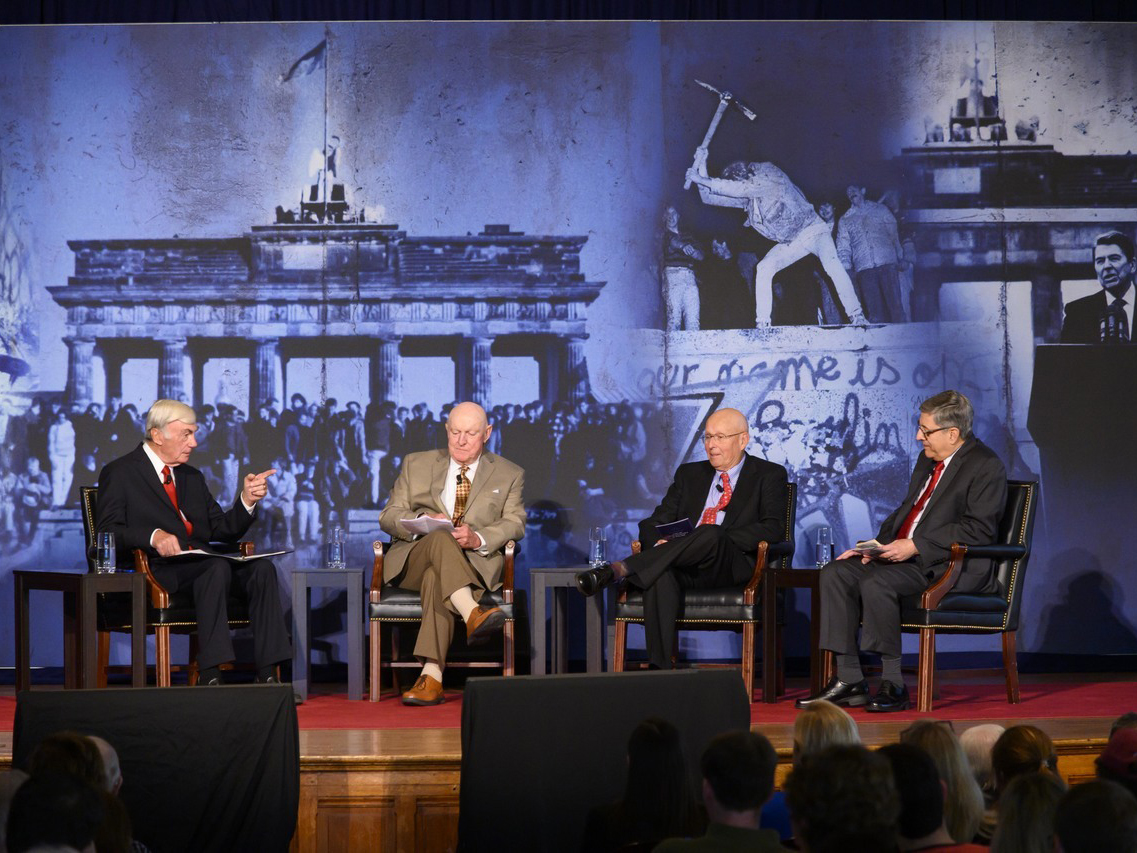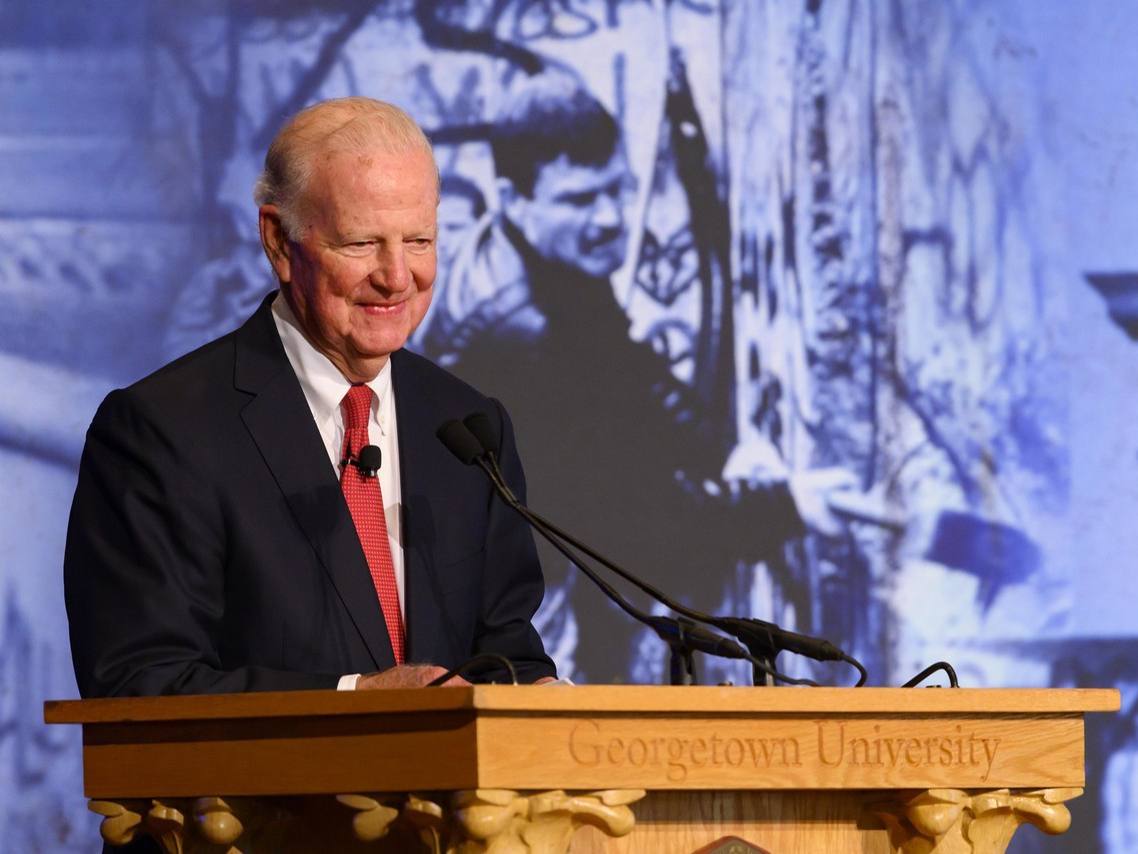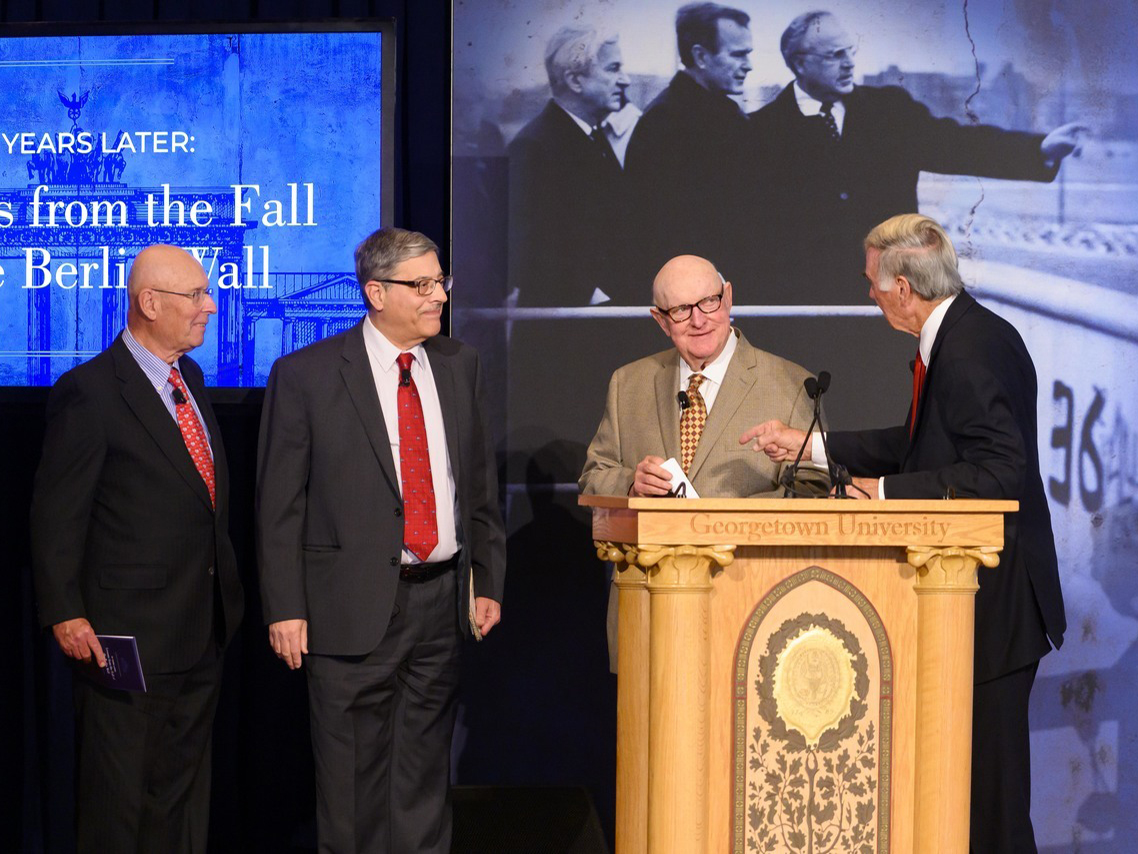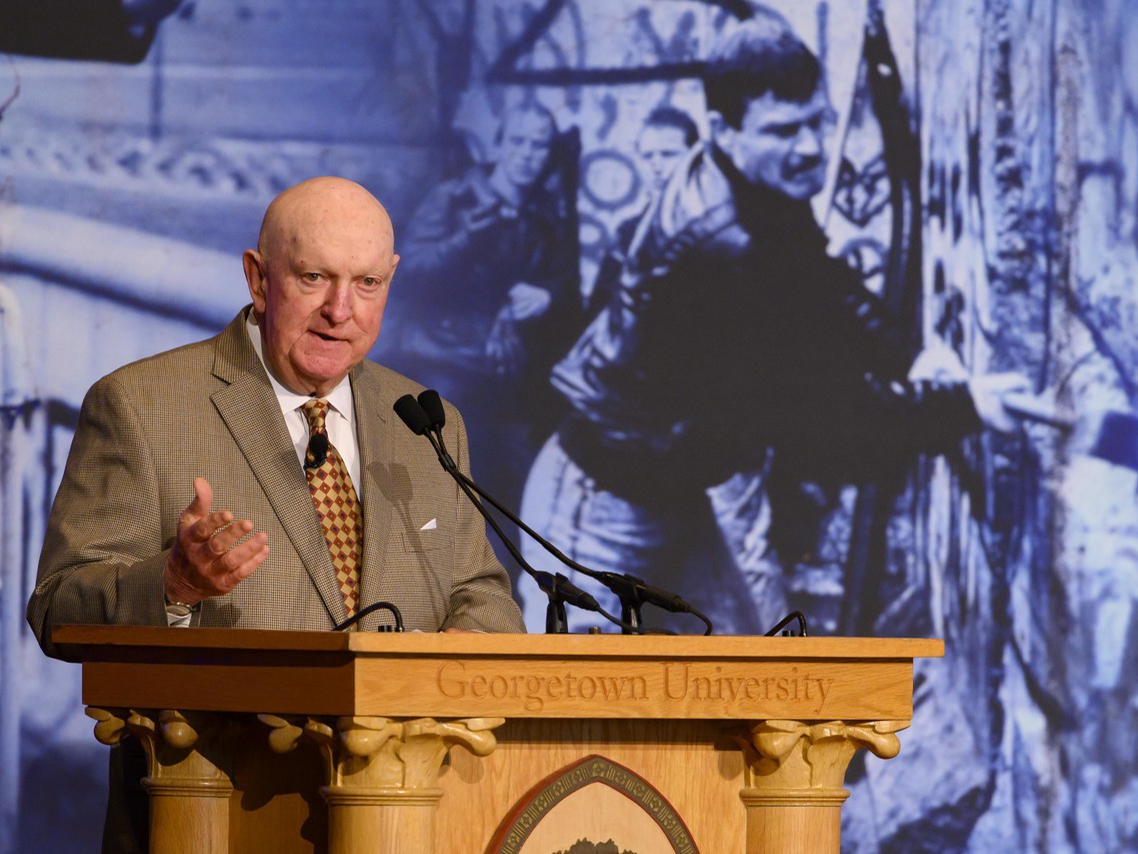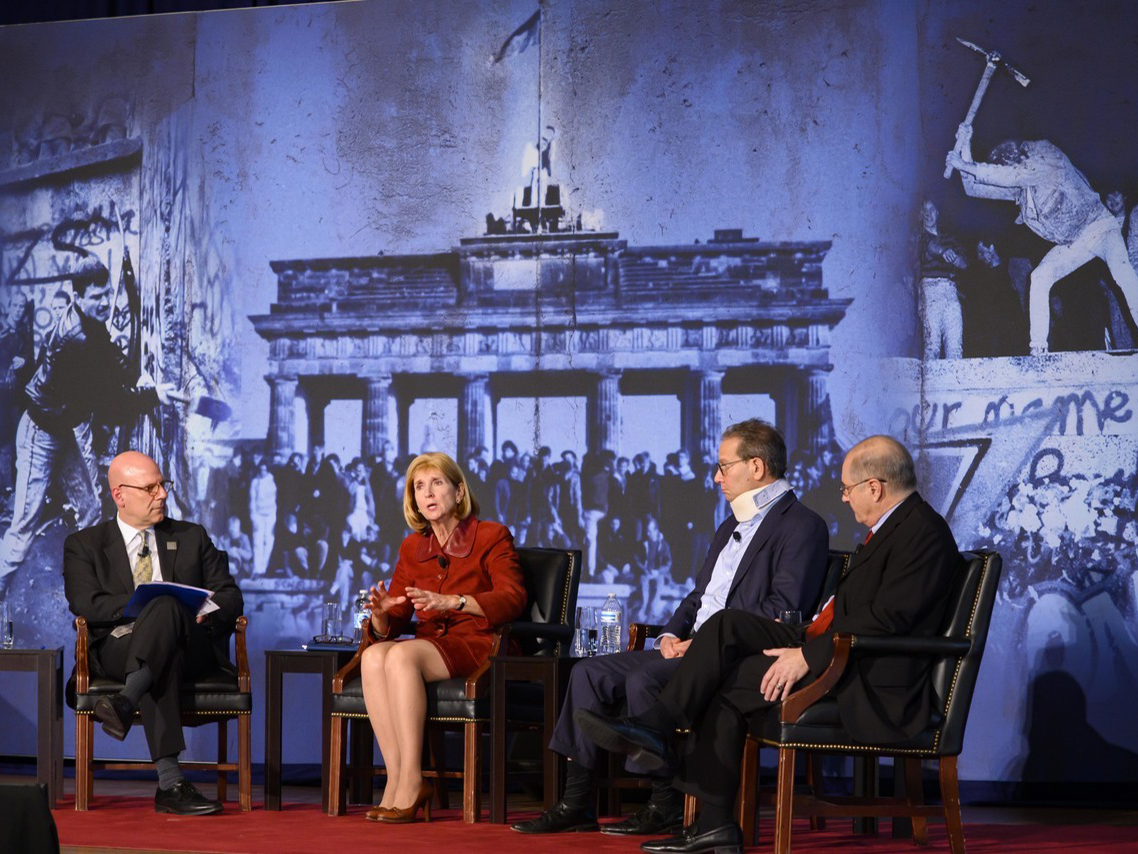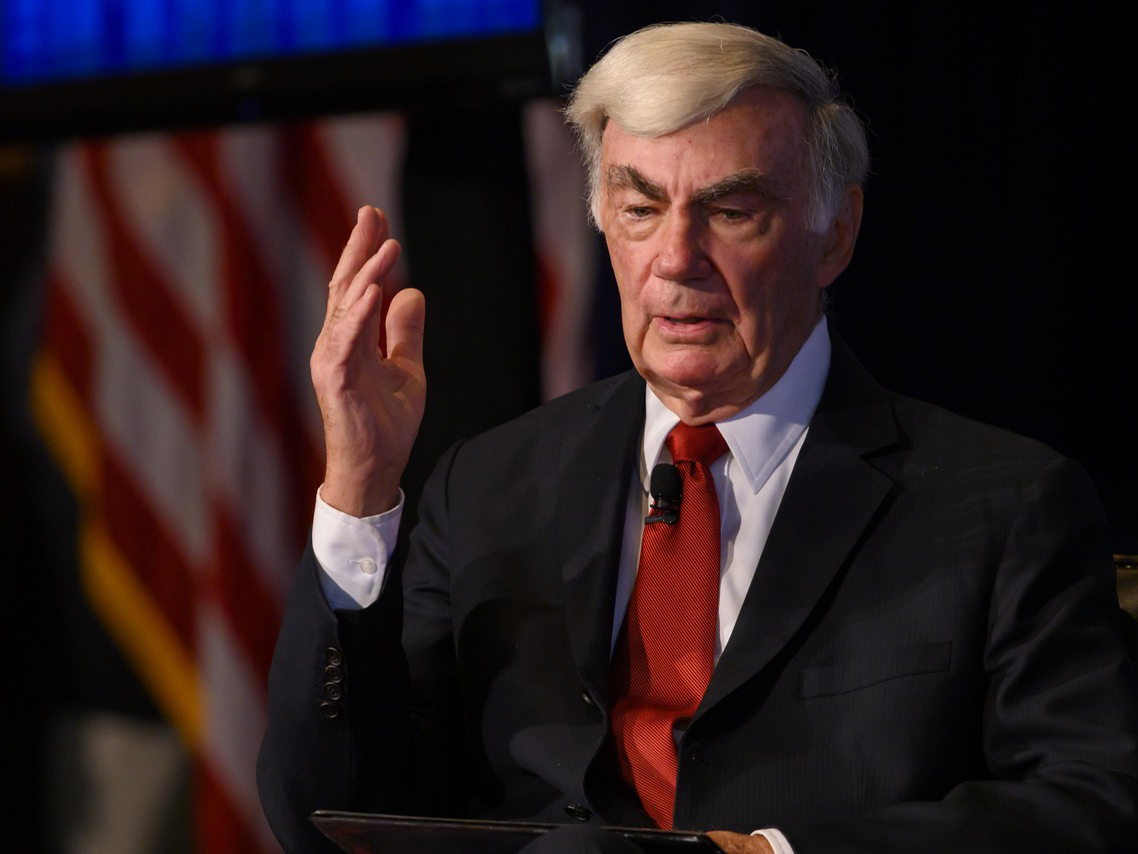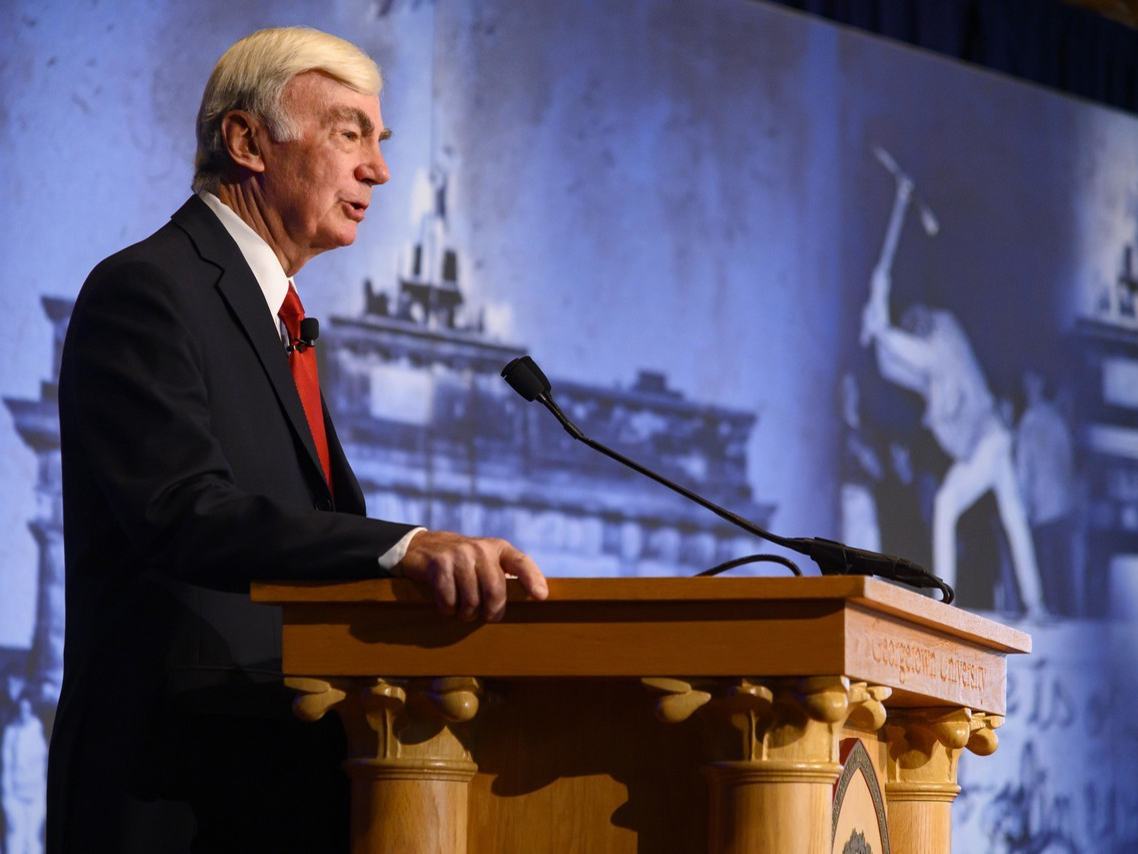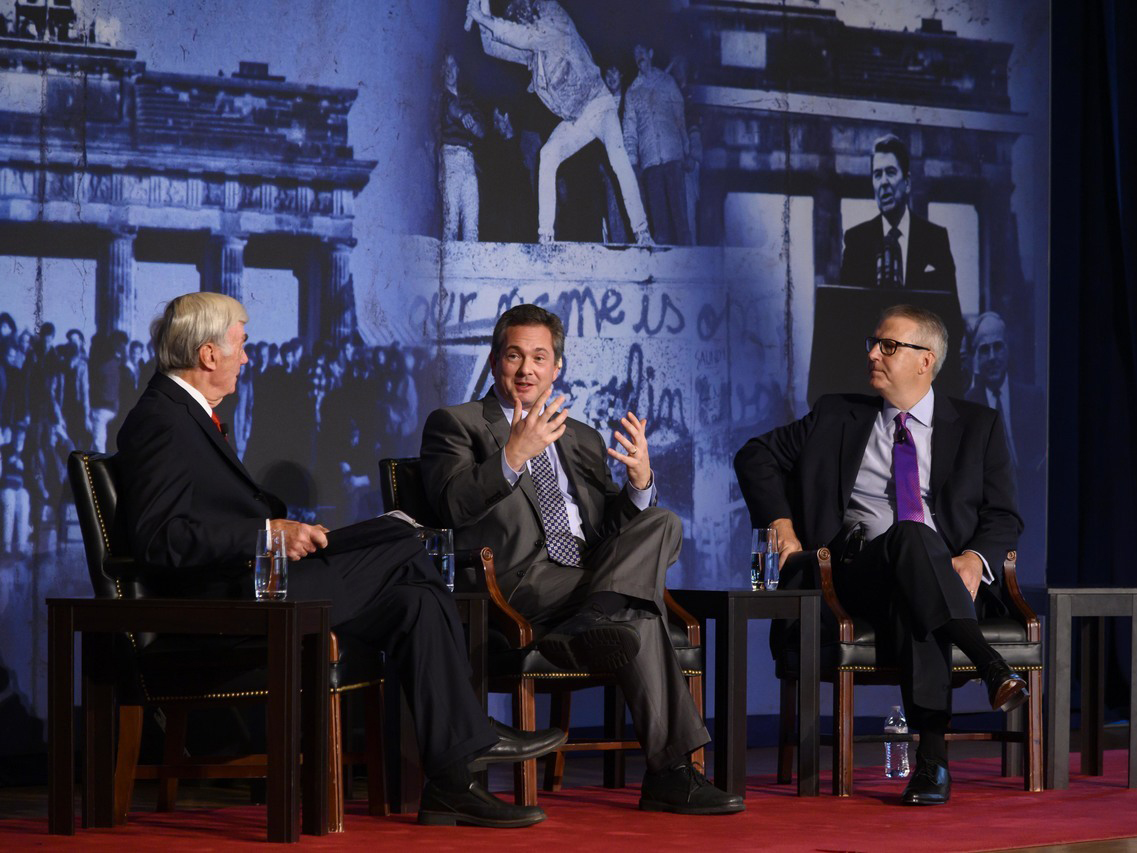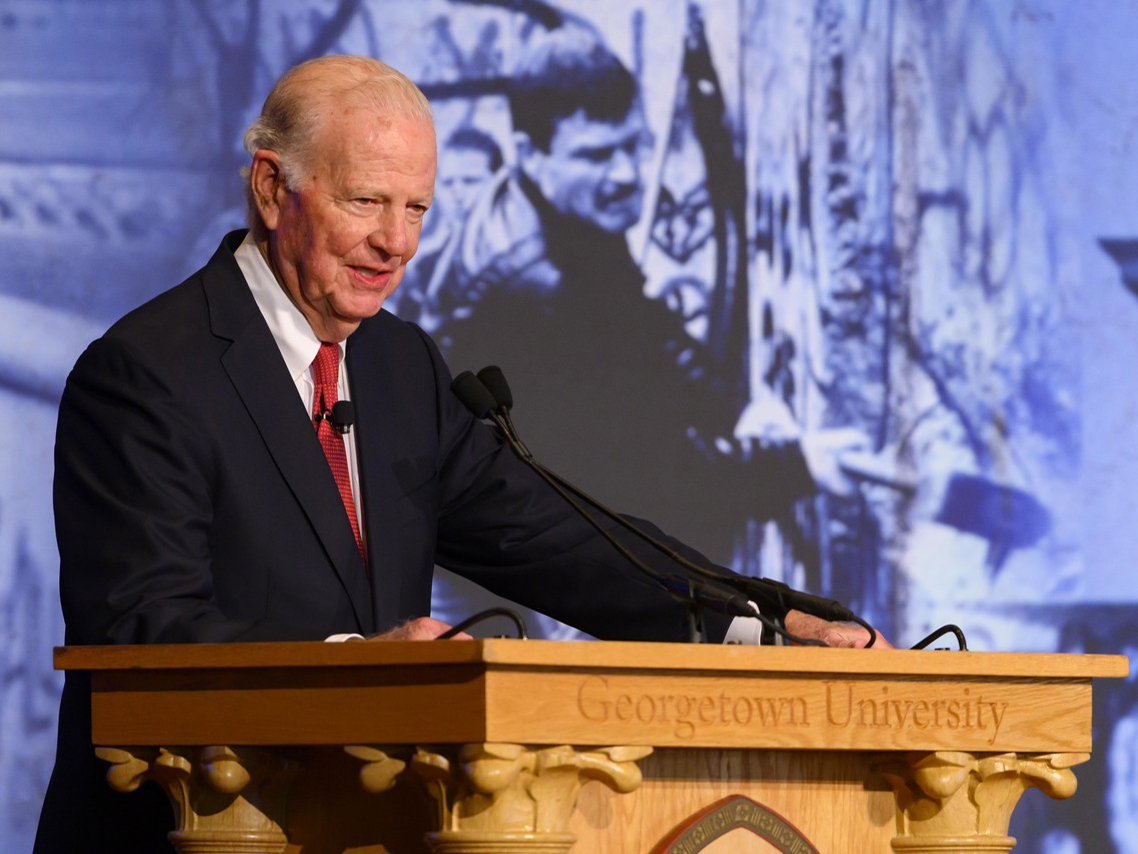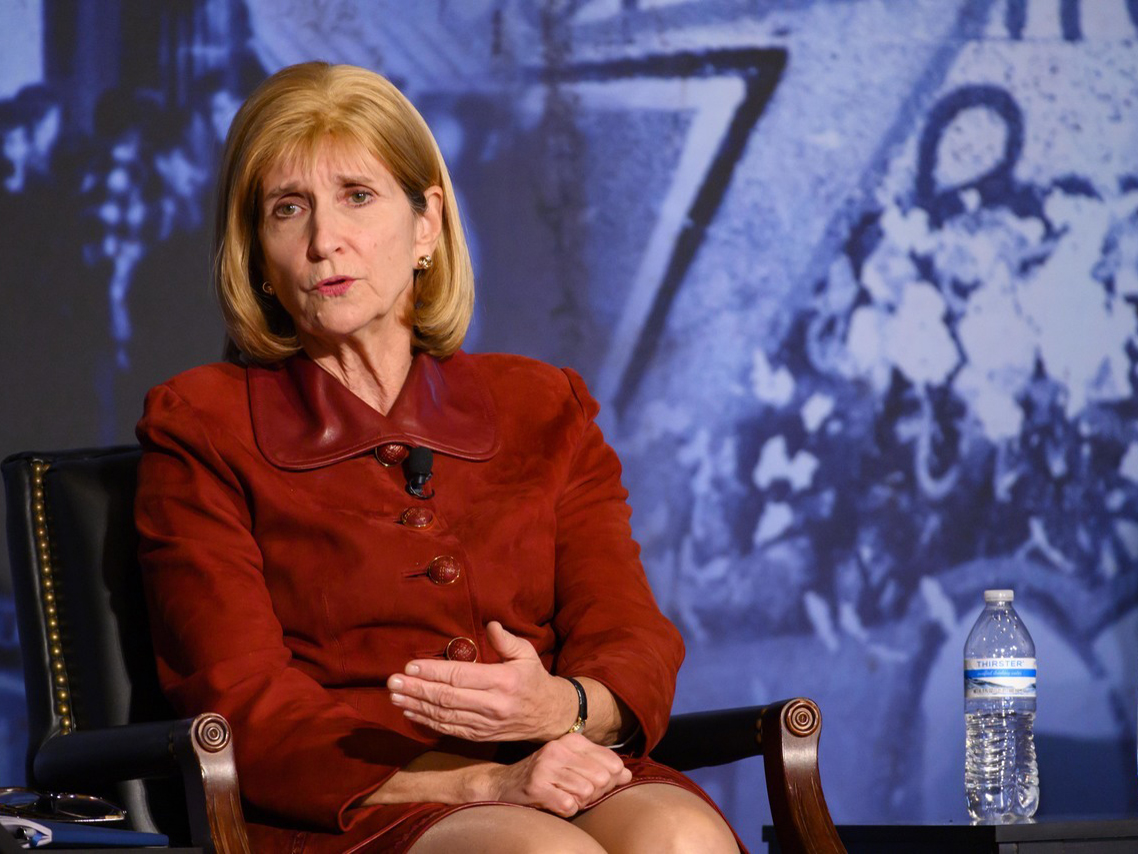Though the fall of the Berlin Wall was a momentous occasion celebrated with cheers and chisels, “inside the White House there were no sirens, no announcements of change, except for the relentless ticking of the wire service machines that they maintained in the National Security Council room,” Marlin Fitzwater, President George H. W. Bush’s press secretary, recounted nearly thirty years after the symbolic beginning of the end for communism in Europe.
Rather than get caught in the moment and attempt to gloat over the developments in Germany, former US Secretary of State James A. Baker explained how critical it was that President Bush “understood that the Soviet Union remained a distinct and potent global security threat. [And] rather than stick it in the eye of his Soviet counterparts, President Bush eschewed triumphalism in favor of clear-eyed diplomacy.”
Fitzwater and Baker recounted their memories of the fall of the Cold War’s most important symbol during an event hosted by the George and Barbara Bush Foundation, the Ronald Reagan Presidential Foundation and Institute, Georgetown University, and the Atlantic Council on November 6 in Washington, DC.
After forty years of the Iron Curtain and a divided Germany, it was clear that the US president was in no hurry to dance atop the wall and claim victory if it came at the cost of the US vision for a Europe whole and free.
“In the end, of course, no one individual was responsible for the fall of the Berlin Wall and the end of the Cold War. Every American president since Truman played indispensable roles,” Baker argued. “But above all else it was the enduring spirit of the citizens of the captive nations that finally tipped the scales toward freedom… it was [their] indominable spirit…that made possible our victory in the Cold War,” he said.
As authoritarian governments begin to flex their muscles on the international stage and tensions between east and west worsen, some of the lessons of the fall of the Iron Curtain remain as relevant today as they did then. After the fall of the Wall “there was a supposition… that totalitarian regimes were not necessarily vulnerable,” Paula Dobriansky, a senior fellow at the JFK Belfer Center for Science and International Affairs, Atlantic Council board director, and director of European and Soviet affairs at the National Security Council when the Berlin Wall fell in 1989, said. “I think what we witnessed, not only with the fall of the wall but the whole sequencing of events, really highlighted that there is great vulnerability [for authoritarian regimes], and that here the power of ideas can really make a difference…that fundamental freedoms cannot be buried or blocked by any kind of wall or barrier,” she argued.
And while many were hopeful that the lifting of the Iron Curtain would result in a Europe whole and free, the full dream has not yet come to pass because, Dobriansky suggested, there has been a “lack of reform [within] the European Union. [Central and Eastern Europe were] not really ever integrated over basic issues, issues that have an economic bearing to their respective countries.” She argued that other European countries need to allow greater flexibility for their neighbors, while tinkering with their own organizations to allow for greater capacity to incorporate all of the continent. But regardless of difficulties that the West has had in reunifying Europe, “there should be a lesson of optimism; that we can actually make a difference and have an impact…and change the status quo in those places where we may not always think that we can,” Dobriansky concluded.
As Dobriansky and Baker argued, the fall of the Berlin Wall and its aftermath have been important lessons for those who wish for the United States to retreat from the world. Both Presidents Bush and Ronald Reagan “realized that a large component of American strength was that we were the promotor and champion of a liberal world order that revolved around open markets, multilateral institutions, and liberal democracy,” Baker argued. “Allies mattered. They still do,”
The former US secretary of state warned the audience that “we need to remember…how important [allies] are to the strength of America. Our alliances enable us to leverage our leadership, our world leadership, significantly. And those alliances are fraying.”
Jasper Gilardi is an editorial assistant at the Atlantic Council. Follow him on Twitter @gilardi_jasper.
Image: The fall of the Berlin Wall, 1989, at the Brandenburg Gate. Photographer unknown.
